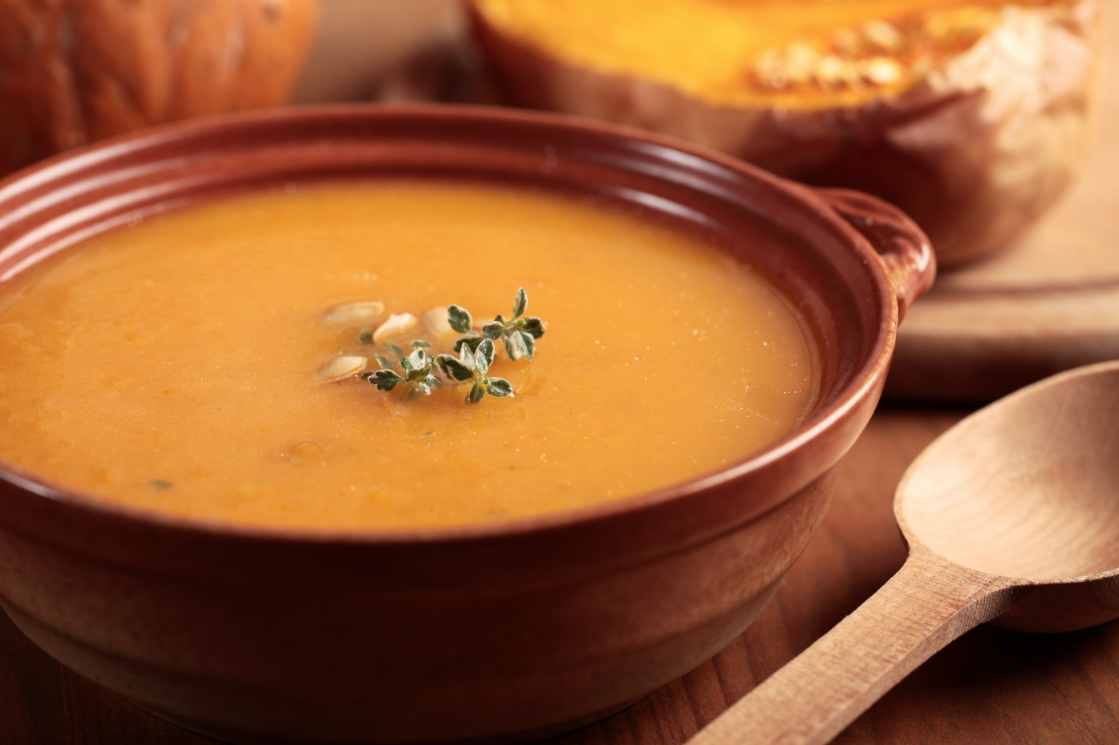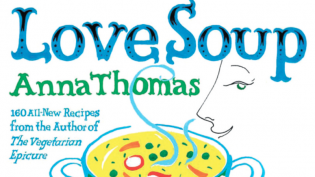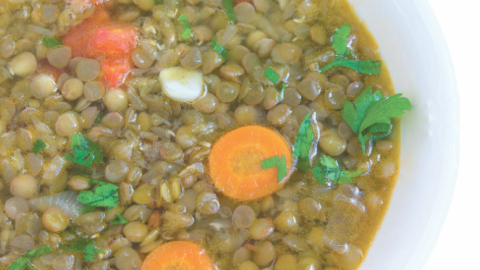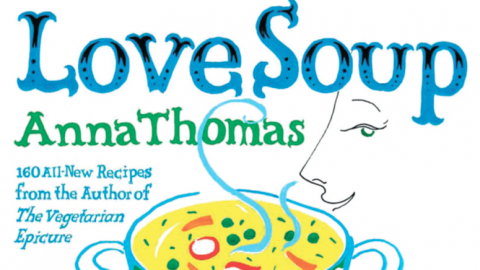Homemade
These are hard times. Right? Most of us are making do with less, sometimes much less. And yet … I feel that somewhere in all this less, there is a secret more.
No, poverty can’t buy happiness. But hard times might lead to good times in unexpected ways. Does eating feel expensive? The hidden gift of these tough times might be a return to home cooking. That comforting ritual, the simple act of preparing food for ourselves, has been slipping out of our lives, washed away in a tide of busyness. It’s time for its return. I didn’t learn to cook until I left home and went away to college. But in the immigrant culture where I grew up, my mother, my Polish relatives, my Italian aunt—they all cooked; the air around me was full of warmth and sharing and good smells.
I ate buttery Polish dumplings, hearty borscht, spicy Italian tortellini and sometimes the glamour of something modern and American, like tuna-noodle casserole. Even while I resisted learning to cook (tedious rebellion) I absorbed the idea that cooking happened. Fresh ingredients were brought into a kitchen and someone’s work—simple or complicated—turned them into delicious food that was eaten at home with the family. Home cooking. It was part of the natural rhythm of life.
Then I went off to UCLA and I began cooking for myself. I was penniless, scraping by on student loans and part-time jobs, and eating out was not an option. So I cooked. I learned by trial and error and I went ahead and ate the errors. And I discovered that as I cooked, life got better—my health, for starters, and also my social life. I liked cooking! I wrote a book about it, for Pete’s sake. And long after I could afford any restaurant, I still loved cooking. It was a gift.
Don’t get me wrong: I’ve had some of the greatest times of my life in restaurants. My husband and I lived in Provence for a while when there were still francs, and there were 10 of them to the dollar! For a few enchanted months we made a tour of the great country inns and restaurants of our region. I still have the Michelin guide rouge from 1984 marked with our notes, a treasured souvenir.
But we had a new baby at the time, and we couldn’t take him out to those restaurants every night. So in between those excursions we went to the Saturday market in Apt for vegetables and cheeses, we bought white peaches at the roadside, walked to the Lumiere bakery for baguettes, drove to the local cooperative for wine … and made wonderful, simple meals at home that we ate at the stone table under the tree in the backyard.
I made such simple food. Steamed new potatoes tossed with parsley and oil and crushed sea salt. Tomatoes simmered with garlic and tarragon, and spooned into an omelet. Grilled cheese sandwiches with the most amazing goat cheese, so perfect with a few black olives and a glass of cold rosé on a hot summer evening.
Now, however, I see young people who don’t seem to know that cooking is part of the natural rhythm of life, who think cooking happens in restaurants and on TV.
Young people, I have a message for you: Visit the land of your ancestors—the kitchen!
You out there, you who’ve never cooked, you can do what I did. OK, skip the book part and just go into the kitchen. Wondering where to start? Soup. Soup is the portal, the way in.
Anyone can make a pot of soup!
Go ahead, no one is looking. Open a bag of split peas and put them in a pot with water. Boil them a while as you cut up a carrot, an onion, a stalk of celery. Chop a little parsley. Add all that to the pot and leave it to simmer while you read a book or answer your email. This is what my friend Lisa calls “meanwhile cooking.” You’re doing whatever you need to do, and meanwhile you’re cooking. After half an hour or so, season that soup with some salt and pepper, and eat it. You’ve made old-fashioned split pea soup. You’re cooking.
Even luxury soups are pretty simple. This is winter, and it is absurdly easy to find a gorgeous butternut squash or a ghostly blue Hubbard squash. Put that squash in the oven to roast. As long as the oven is on, why not roast a few root vegetables as well? Now chop a couple of onions and cook them slowly in some olive oil, stirring while you slice a pear.
By now the house smells like heaven, and anybody who walks in the door will be your willing slave. When the squash is soft, scoop it out and put it in a pot with the other vegetables and some broth, simmer a while, then blast it all with an immersion blender. Season with salt, pepper, a little lemon juice … and you’re done. (If you want to be fancy, stir in some mascarpone.) You’ve made a silky, golden purée; more delicious than anything you’ll get in a restaurant, for pennies a bowl.
At the bottom of all this there is a deeper question: Are we prepared to give away our whole relationship with food to professionals, to commercial interests, good or bad? Will corporations always be between us and what we eat? Or do we want to know what we’re putting on the plate, and where it came from?
Do we want to know that we can take care of ourselves? That we can pick up an onion, a potato, a bunch of chard, and make a simple dish—a friendly bowl of pasta, a stir fry, that pot of soup.
I know I’m fortunate. I live in California’s Ojai Valley, near farms and orchards where dedicated farmers grow beautiful produce. My kitchen may not look like the kitchen of my ancestors, but in some ways it is the same. I get much of my food nearby, often directly from the folks who are growing it. My friends laugh at me because when someone asks “what’s in this?” I start reciting, “Oh, green garlic from Peter, and BD’s fennel and mint, and that great chard from Steve … ” I’m just being fair. I know I get a lot of credit for what farmers do. What I do is try to make sure the path between field or farm and my kitchen is as short and uncomplicated as possible.
I do want to know what I’m eating, what I’m feeding my family. And I find pleasure in having my hands on my food. On my big soapstone counter you will frequently see baskets of fava beans, bowls of walnuts, trays of fruit from the garden. Watching the storm outside the window for a while and cracking the walnuts is a pleasant meditation. Sitting with a friend on a summer evening, sharing a glass of wine and shelling favas, is a convivial pleasure. Dropping vegetables into a pot of water or a sizzling wok is an act full of hope. Stirring that pot of soup is like stirring my history. And eating with my friends, all of us in the kitchen together, crowded around the table, tasting, talking, laughing well into the night—that is a joy that is homemade.







